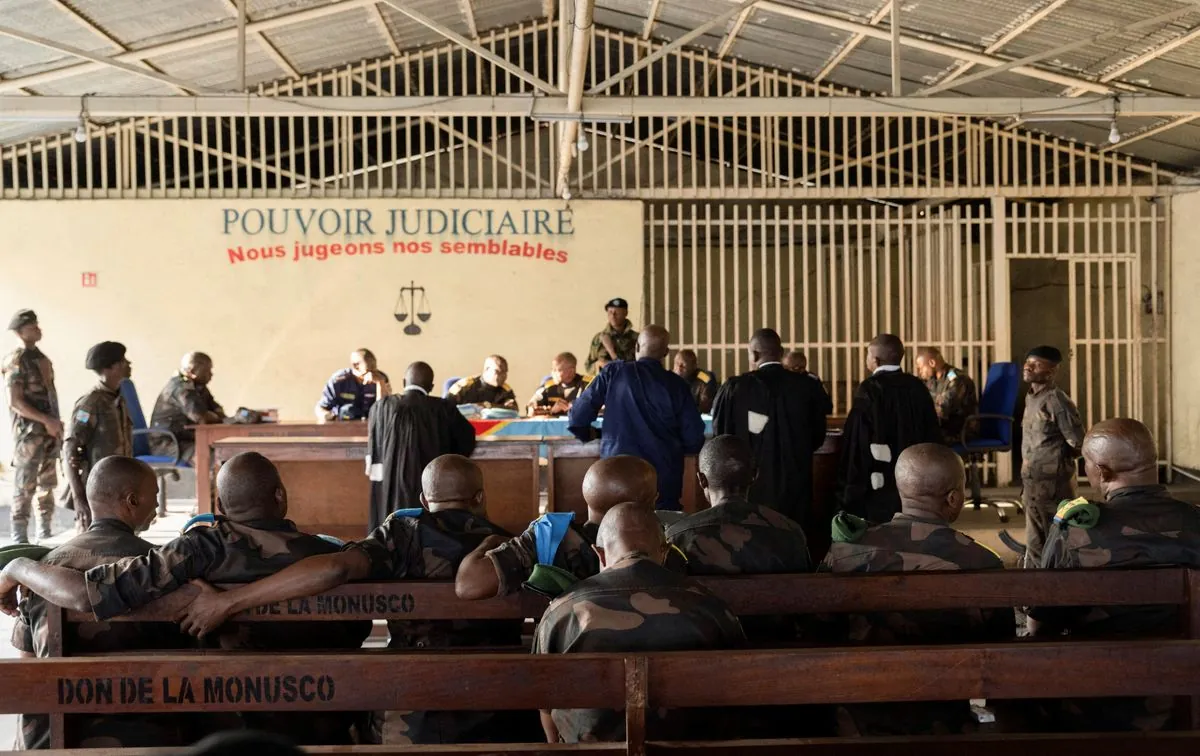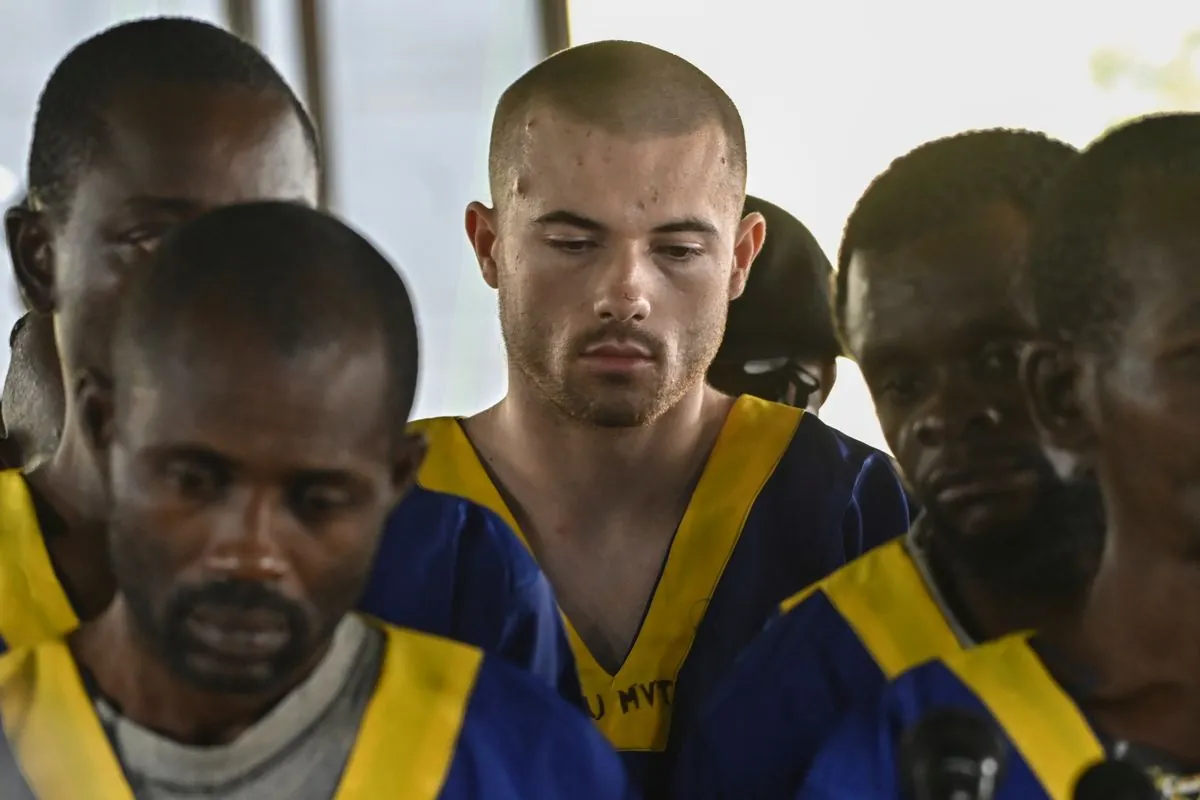Congo Court Sentences 37, Including 3 Americans, to Death for Coup Attempt
A military court in Congo has sentenced 37 people to death for a failed coup attempt. The defendants, including three Americans, were convicted of terrorism and other charges. The verdict can be appealed.

In a significant legal development, a military court in the Democratic Republic of Congo has issued death sentences to 37 individuals, including three American citizens, for their alleged involvement in a failed coup attempt. The verdict, delivered on September 13, 2024, has drawn international attention due to the severity of the sentences and the involvement of foreign nationals.
The defendants, comprising a diverse group of Congolese and foreign nationals, faced charges of terrorism, murder, and criminal association. Among those convicted were citizens from the United States, United Kingdom, Belgium, and Canada. The court's decision comes after a trial that began in June 2024, lasting approximately three months.
The failed coup attempt, which occurred in May 2024, targeted the presidential palace and a close associate of President Felix Tshisekedi. The operation, led by opposition figure Christian Malanga, resulted in six fatalities. Malanga was fatally shot while resisting arrest shortly after live-streaming the attack on social media.
Among the Americans sentenced was Marcel Malanga, the 21-year-old son of Christian Malanga. His mother, Brittney Sawyer, maintains her son's innocence, stating he was merely following his father. The other two Americans involved were Tyler Thompson Jr. and Benjamin Reuben Zalman-Polun. Their families claim they had no prior knowledge of the coup plans.

The Democratic Republic of Congo, the second-largest country in Africa, has a complex history of political instability and coups. The country gained independence from Belgium in 1960 and has since experienced numerous conflicts, including the Congo Wars from 1996 to 2003. With over 200 ethnic groups and French as the official language, Congo faces significant challenges in maintaining political stability and economic development.
Congo's legal system, based on Belgian civil law and customary law, has recently undergone a significant change. In early 2024, the country reinstated the death penalty, lifting a moratorium that had been in place for over two decades. This decision was made as authorities struggle to curb violence and militant attacks in the country.
The trial and sentencing were conducted in an open-air military court and broadcast live on television, reflecting the government's attempt to demonstrate transparency in the legal process. However, the severity of the sentences has raised concerns among human rights organizations and the international community.
"I call on the judges to sentence to death all of the defendants, except for one who suffers from psychological problems."
It's important to note that while death sentences have been issued, the defendants have the right to appeal the verdict. The case highlights the ongoing challenges Congo faces in maintaining political stability and the rule of law.
Congo, despite its vast mineral resources including gold, diamonds, and coltan, continues to struggle with economic development. The country has one of the lowest GDP per capita in the world, with its economy heavily dependent on mining and agriculture. These economic challenges, combined with political instability, contribute to the complex situation in the country.
As a member of the United Nations since 1960, Congo's handling of this case and its recent reinstatement of the death penalty may face scrutiny from the international community. The situation underscores the delicate balance between national security concerns and human rights considerations in a country with a long history of political violence and human rights abuses.


































